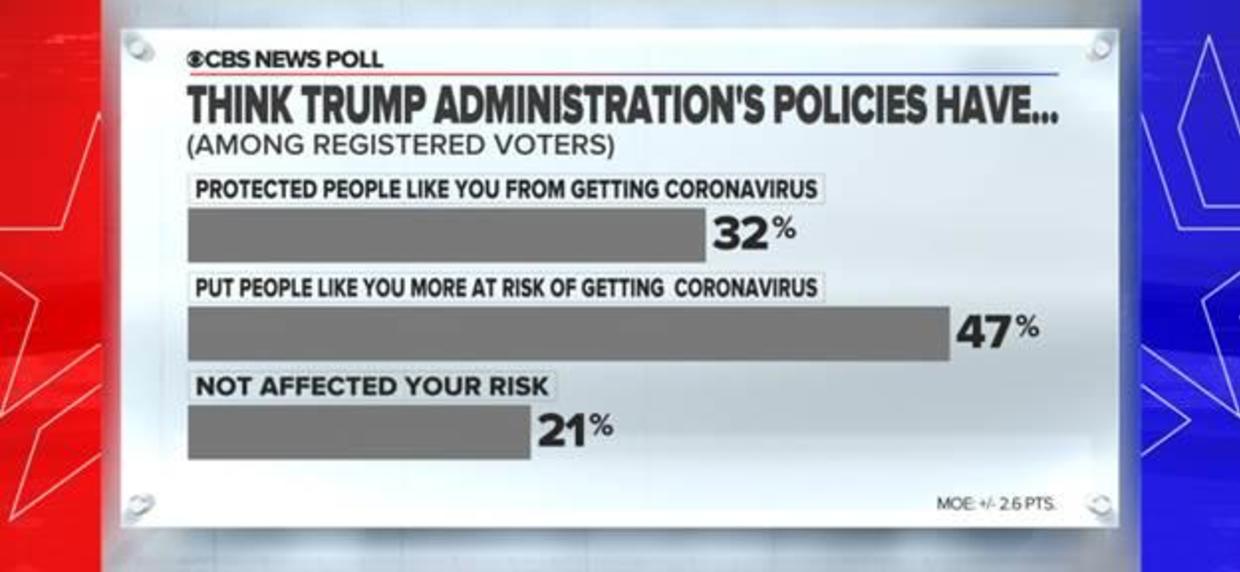A 57% majority of Americans think police generally treat whites better than blacks. Blacks, in particular, say this, at 78%. There are also differences on these views by party: most Republicans feel the police treat everyone equally, while among Democrats, 80% see differential treatment against black people.

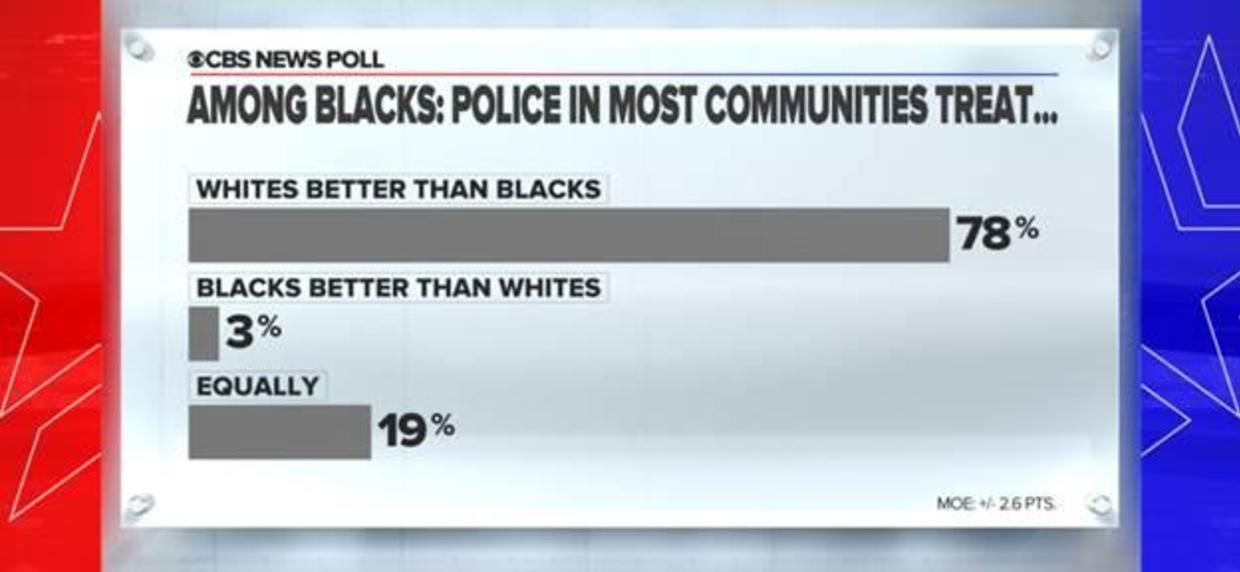
Americans see more division than unity in President Trump's tweets, and feel the motive is just as much to distract as to communicate directly.
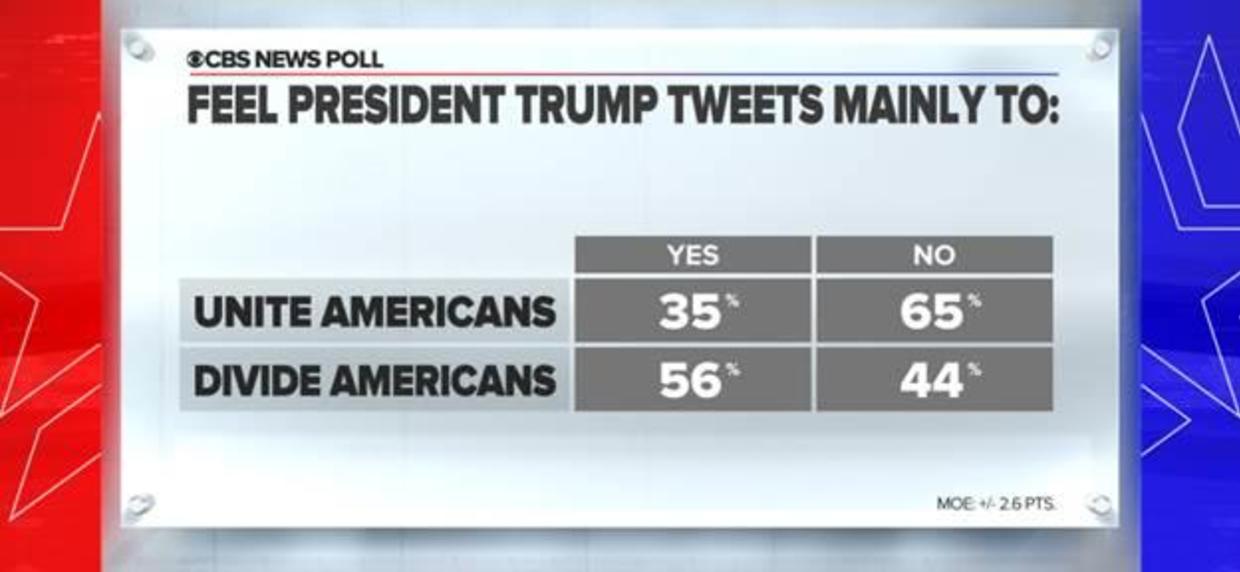
Most Republicans differ, with two-thirds saying the president tweets to try to unite Americans though one-third of Republicans don't agree, and one-third of Republicans think the tweets are a distraction from other issues.
President Trump gets net negative ratings when Americans are asked about his response to the protests and events in Minneapolis. One in five said they hadn't heard enough. By comparison, fewer Americans have heard anything about Joe Biden's response to those events, but those who have an opinion are more likely to approve than disapprove.
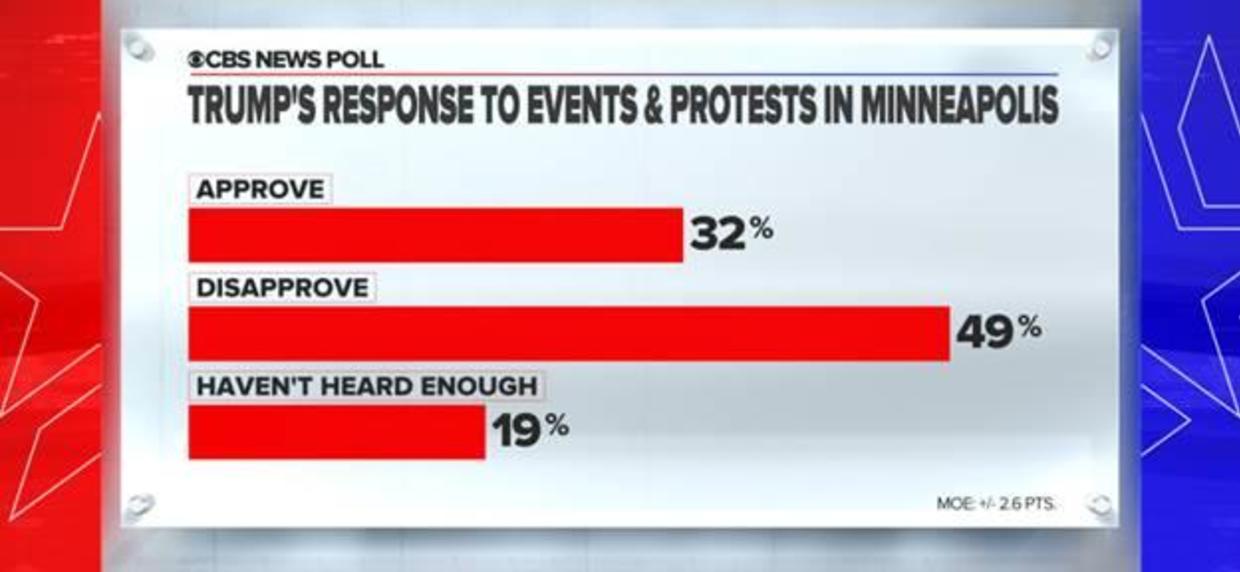
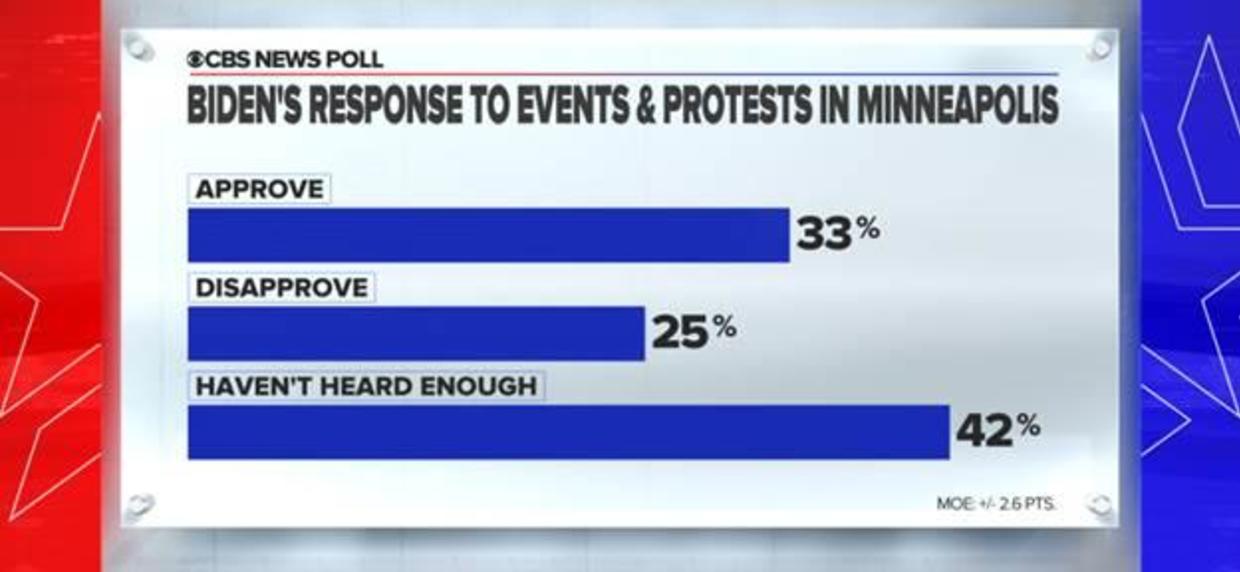
In a nationwide head-to-head matchup, Joe Biden remains ahead of Donald Trump, this week by four points among likely voters. As we often note, this gives the general preference of voters, but there is no national vote that determines the presidency. That will be decided state by state. Biden has led in this measure by between two and six points since February.
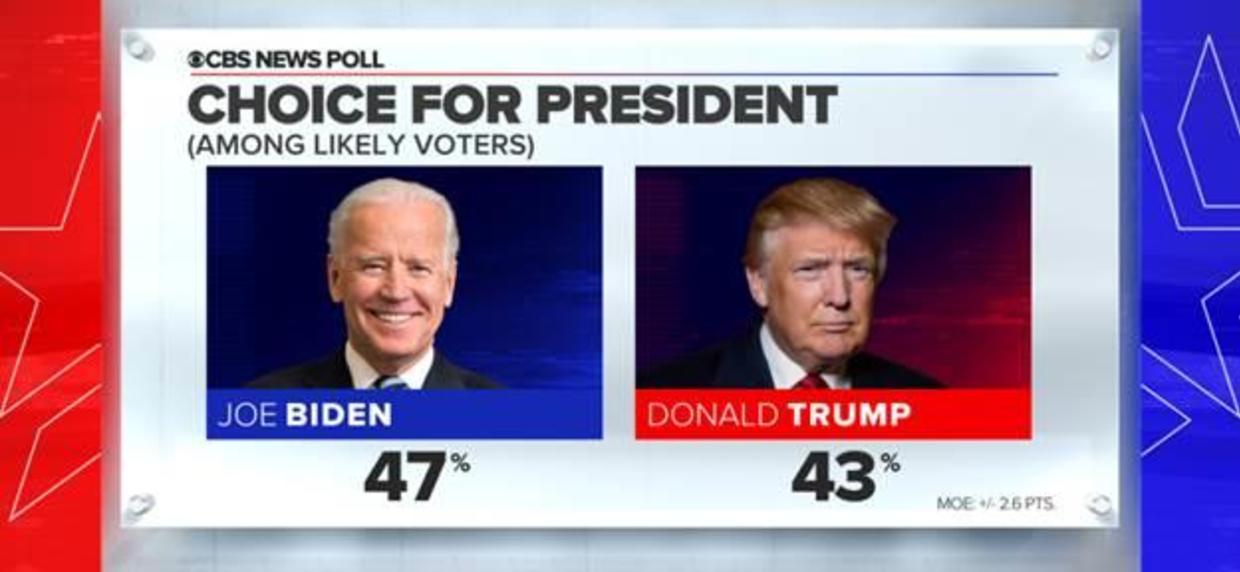
Most Americans continue to feel efforts against the coronavirus are going badly, but not everyone says the outbreak thus far is a factor in their vote. It's a "major factor" for half, including most Democrats, and two-thirds of those who call it a major factor are backing Biden. Only a third of Republicans say it'll be a major factor in their vote even though they give President Trump high marks for handling it.
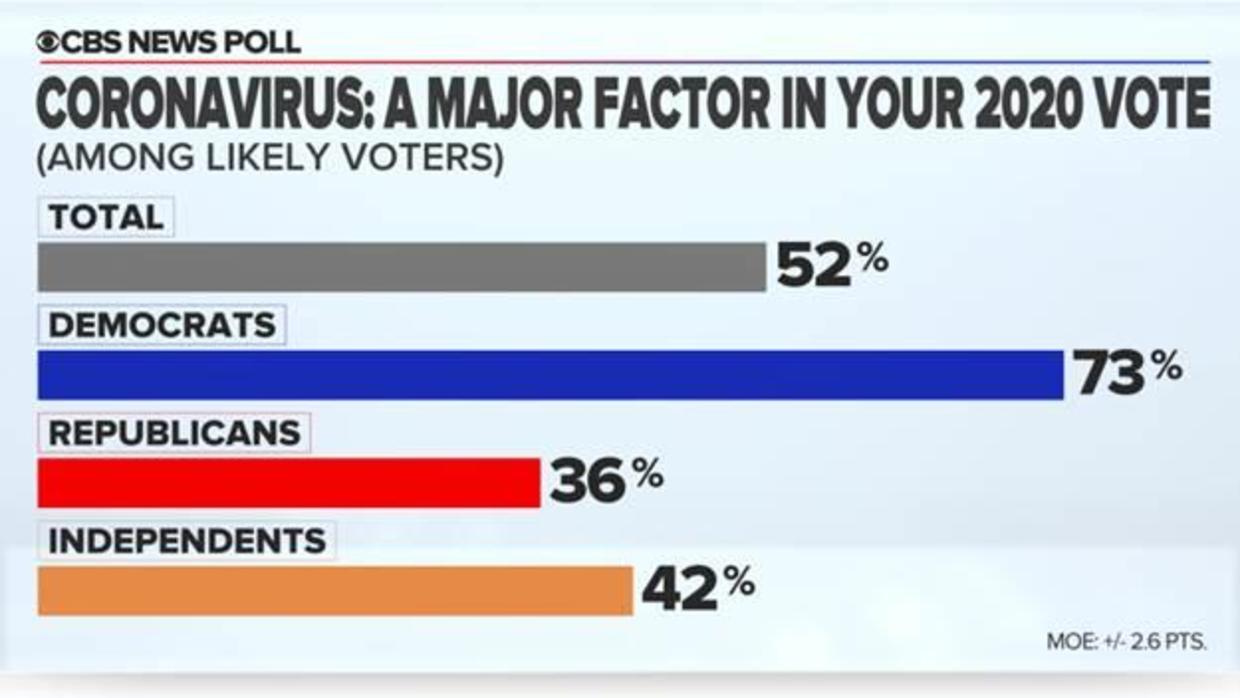
The economy, meanwhile, is cited as a major factor by 72%, including by most Republicans. And the candidates' personal qualities ranks as a major factor among all.
Looking at voters' perceptions of how the president approaches different groups of Americans, half feel he works against blacks, and that's more than feel he's either neutral toward, or favors them, each by a wide margin.
Among black registered voters in particular, by more than eight to one they say the president works against them, rather than favors them, and a large majority of Democrats also feel this is the case. A majority of voters also think the president favors men. And 72% of voters say he favors whites, more than that he is neutral (23%) toward them.
Among Republicans, however, this is not the case, as they believe the president tends to favor or is at least neutral toward all of these.


Voters foresee Joe Biden would be more mixed in dealing with various groups, with comparatively more feeling he'd be neutral or favor them. However, more Republicans think Biden would work against whites rather than favor them, or than be neutral toward them.
When asked to speculate how Joe Biden might handle the coronavirus if it is still a problem next year, 54% think he'd do a good job, with views split along party lines.
But the president's policies are seen as a net negative impact on peoples' personal safety from the virus and their economic well being. Only a third of voters say the president's policies have protected people like them from getting the virus, while more think the policies have put them at more risk.
